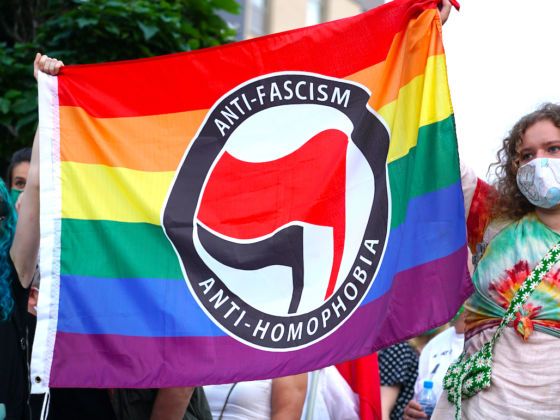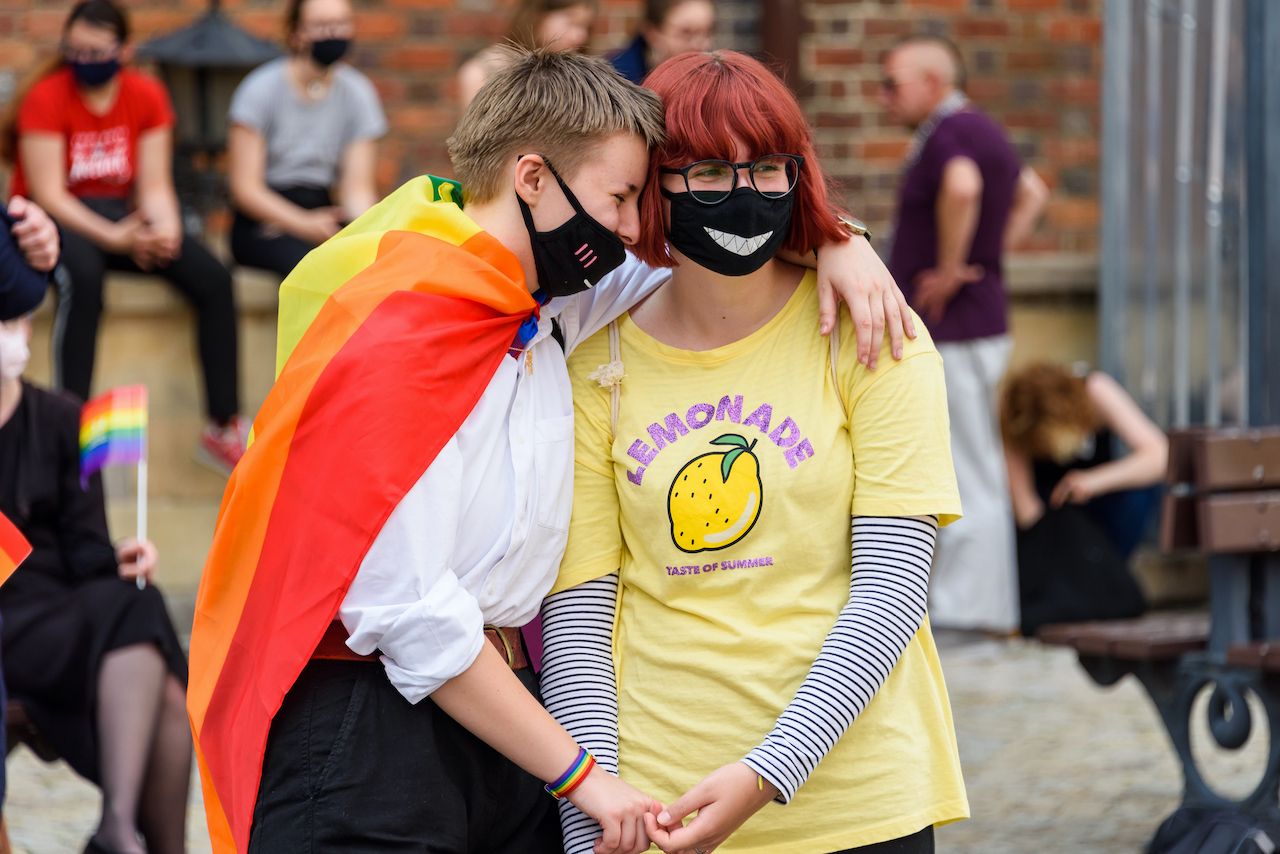Thousands of protesters fighting for LGBTQ equality took to Poland’s crowded city streets in Warsaw, Krakow, Lublin, and Wroclaw last weekend, chanting, “You will not lock all of us up!”
The demonstrations erupted one day after police arrested non-binary activist Margot Szutowicz in Warsaw for acts of civil disobedience. Her supposed crimes include hanging rainbow flags from prominent city statues and slashing the tires of a van responsible for spreading anti-LGBTQ rhetoric like “homosexuals are preparing society to accept pedophilia.” At least 48 other people were arrested, and officers reportedly used violent tactics — like holding people down with their boots – to quell the peaceful protests. Police gave many detainees no reason for their arrest.
Advocacy groups quickly dubbed the demonstrations “Polish Stonewall,” drawing parallels to the fight against police brutality led by NYC’s queer community 51 years ago. The events of June 28, 1969, changed the course of history. Here’s hoping the events of August 8, 2020, have the same power.

